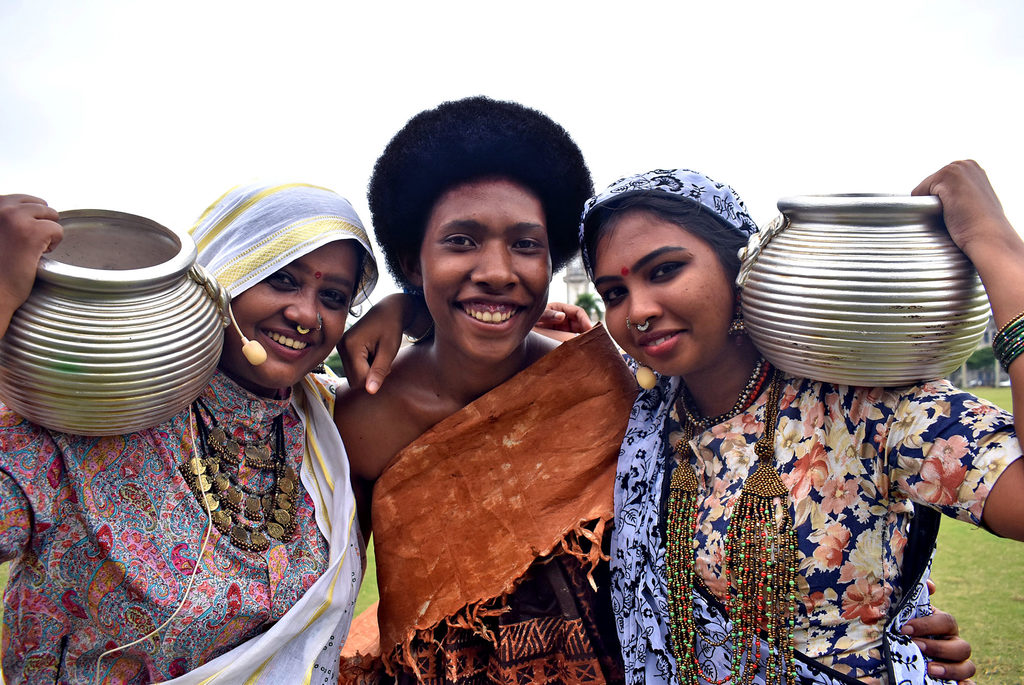CAN the ‘us versus them’ mentality be removed from the political and social landscape?
Fiji has endured political instability, inter-ethnic tensions, and economic inequality. But our future does not have to be defined by the past and we do not have to live shackled as victims of our past.
A truly strong, resilient, and unified Fiji must be built on honest dialogue, inclusive policies, and community-driven solutions ensuring that every Fijian, regardless of ethnicity, feels a deep sense of belonging and shared ownership in shaping the nation’s destiny.
Bridging the divide: Learn from the past to build the future
Fiji’s historical divisions stem largely from colonial-era policies that, while at times were well-intended, also created deep societal rifts. Land disputes, political power struggles and divisive narratives have contributed to fuelling mistrust.
Some of these wounds remain, often exacerbated by self-serving political agendas and negatively tempered narratives.
However, the past need not dictate the future. The Truth and Reconciliation Commission will provide a powerful platform for healing — not just for those affected by political upheavals but also for generations burdened by a legacy of ethnic divisions and deep emotional hurts.
If handled with wisdom, integrity, and genuine commitment, this process can replace mistrust with collaboration and understanding, forgiveness, and a shared purpose and destiny.
Beyond legal reforms: Uniting Fiji through leadership and
opportunity
Removing race-based voting was a step forward. But true unity requires more than legislative changes. Representation in government and leadership roles must be based on merit, vision, and a shared national identity — not outdated racial divides or nepotism.
For Fiji to thrive, we must move beyond “us versus them” thinking and embrace policies that uplift all communities — empowering indigenous Fijians, securing stability for Indo-Fijian farmers, and creating pathways for every Fijian to succeed and prosper.
Empowering iTaukei communities through economic
leadership
Despite vast land ownership, many iTaukei communities still struggle with poverty. The key to lasting prosperity isn’t just leasing land. It’s developing and owning businesses in tourism, agriculture, and sustainable industries.
With access to capital, training, and strategic partnerships, i-Taukei landowners can drive their own economic future rather than relying on external entities for handouts.
Ensuring stability & growth for Indo-Fijian farmers
Indo-Fijian farmers continue to face uncertainty due to land lease issues. A secure future requires fair, long-term lease agreements, investment in alternative economic opportunities, and equitable access to resources. This will not only protect livelihoods but also enhance national food security, foster economic stability and create more jobs.
Tackling Fiji’s rising drug crisis: A united approach
The rise in drug and alcohol abuse, especially methamphetamine, threatens families and communities. Fiji’s strategic location makes it a target for international trafficking, demanding stronger coastal patrols, intelligence-sharing and gathering and proactive policing.
Yet, enforcement alone won’t solve the crisis. Many struggling with addiction need rehabilitation, not just punishment. Faith groups, traditional leaders, and Non Government Oganisation’s (NGO) must collaborate on mental health support, skills training, and reintegration programs.
Countries such as Portugal have successfully reduced drug abuse by offering young people alternative pathways through sports, arts, and job training. It’s a successful model Fiji can adapt.
Reversing brain drain and
restoring investor confidence
Political instability has driven away some of Fiji’s brightest brains and biggest investors. To reverse this trend, we must;
m Strengthen democratic institutions;
m Uphold the rule of law and fight corruption; and
m Cut bureaucratic red tape and encourage entrepreneurship.
Public forums that unite leaders from all ethnic backgrounds, businesses, and faith communities can rebuild trust, foster dialogue, and create solutions that benefit all Fijians.
The media, too, must act responsibly promoting fair, unbiased reporting that informs rather than divides.
A national movement for unity and progress
Real transformation won’t come from politicians alone. It must be driven by every sector of society churches, the vanua, businesses, and grassroot movements.
Instead of blaming the past, let’s focus on the future by asking;
m How do we create opportunities for all Fijians?;
m How do we learn from past mistakes and build a stronger, more resilient and united nation?; and
m How do we ensure the next generation sees itself as Fijian first before ethnicity?
The spirit of Fijian rugby:
A blueprint for unity
If there’s one thing that unites Fiji, it’s rugby. No matter our background, we stand together when our team takes the field.
Our rugby stars play with heart and soul, driven by a shared vision and purpose that’s electrifying. They carry the hopes and dreams of a united nation proving what’s possible when we cheer and choose to work as one.
This is the Fiji we must strive for — not just in sports, but in our schools, businesses, communities, and government.
“One People, One Nation, One Fiji”.
The time for blame and being a victim is over. The time for removing the shackles and the stigma of the past is now.
True unity isn’t about erasing differences — it’s about embracing and celebrating them while moving forward together. Fiji’s strength lies in its diversity, and its future will be shaped by those willing to build bridges, not barricades.
Go Fiji, Go!
n COLIN DEOKI lives in Melbourne, Australia and is a regular contributor to this newspaper. The views expressed in this article are his and not necessarily of this newspaper.



